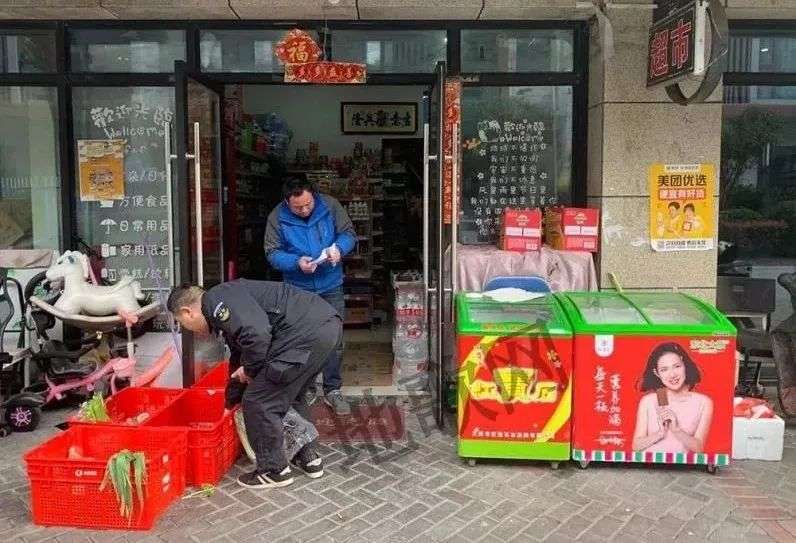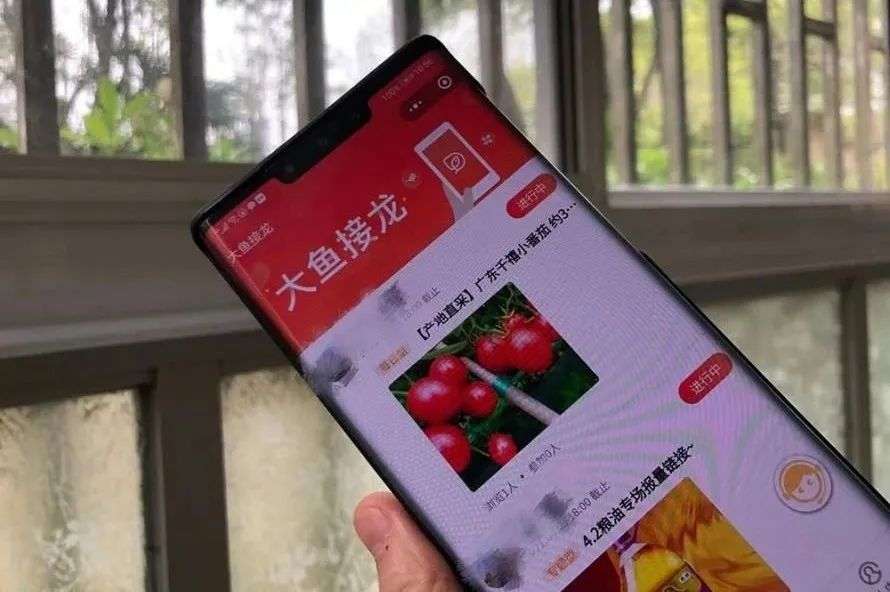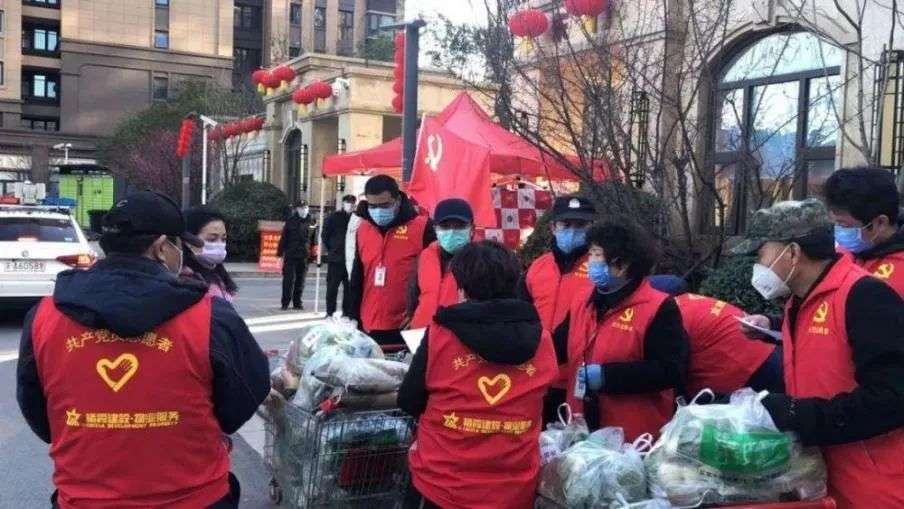The topography of the Shanghai group buying market is complex, can past experience be replicated?
Editor’s note: This article is from the micro-channel public number “New Retail Business Review” (ID: xinlingshou1001), Author: Tianqiao Yun.
Since the second half of last year, it has attracted major Internet companies and various capital-intensive community group purchases, and finally entered the stage of fighting for internal power since 2021.
Enclosures, recruitment of team leaders, and the nationwide community group buying battle has not ended, but the audience is already tired. After entering the Shanghai market, community group buying will enter the “deep water zone” competition.
Shanghai has a huge consumer population and huge market potential, but at the same time, the maturity and richness of retail channels make consumers in this city more rational. In addition, the individual characteristics of the community make the community group buying market in Shanghai “complex”.
Based on a series of factors, group-buying giants are very cautious about entering Shanghai. At the beginning of this year, Pinduoduo’s community group buying brand “Duo Duo Mai Cai” entered the Shanghai market, and Meituan Optimal and Orange Xin Optimal followed up immediately.
So, can the battle experience used by giants in second- and third-tier cities such as grabbing people and enclosing land be applied to the seemingly low-key Shanghai group buying market? Who are the current Shanghai community group buying players? What are the hidden risks in Shanghai’s community group buying market?
Geometry of the effectiveness of grabbing people and enclosing land
In March of this year, Ms. Huang, who lives in Shanghai, discovered that “Duo Duo Mai Cai” appeared on the homepage of Pinduoduo App. She has been in various apps all the year round and clicked on the “nearby pick-up point” and found that there were more than a dozen pick-up points within 1 kilometer of her home, and the nearest one was less than 200 meters away from her.
Ms. Huang decisively placed an order, which is basically rice, eggs, vegetables and meat and other special items. Because it is a new user, the cheapest order is eggs, only 0.01 yuan. When placing the order, the system prompts that the goods will arrive at 4 pm the next day, but around noon the next day, Ms. Huang has already received the delivery notice.
After arriving at the pick-up point, Ms. Huang found out that this was a fruit shop. Since the shop owner had a lot of goods in his own shop, the group-buy goods were piled up randomly. After Ms. Huang reported her name, the shopkeeper took the orders and sorted them on the spot.
These small shops on the roadside are becoming the target of the group buying platform
When communicating with Ms. Huang, the head of the delegation said that the current model is different from the promise made during the promotion of Dodo Shopping. “They said at the time that they would sort the orders. I just need to set aside a place. Individual goods will do. But now they directly leave the goods to the store entrance every day and leave.”
At present, the team leader needs to spend at least one or two hours a day to tally the goods, and when the customers pick up the goods, they will sort them on the spot according to the order. “It’s okay when it’s empty, and getting busy will affect my own business.”
When Ms. Huang picked up the goods, an aunt was returning the goods. According to the group leader, the return of group-buy products is very simple, as long as you apply for the return on the App. But it is a bit troublesome for the group leader, because the returned goods are often not collected in time, and they can only be piled up in the store to occupy space.
New Retail Business Review observed this pick-up point on the spot and found that the people who came to pick up the goods basically left after picking up the goods. “They (referring to a lot of food) said at the time that being a team leader can drain traffic, but now I discovered that these people will not buy fruit from me at all.” The team leader said a little helplessly.
In the head of the group’s opinion, those who choose to buy food on Duoduo are those who are cheap, and the fruits and eggs used for drainage can sometimes be bought for 1 cent. “Who will buy it?” Where are the eggs and fruits in my store?”
In a place less than 50 meters away from this self-pickup point, there is another Duoduo grocery pick-up point. This is a lottery kiosk. Different from the fruit shop owner, the lottery kiosk owner has already used his leisure time to sort the orders before the consumer picks up the goods, and the consumer can pick it up at the store.
The owner of the lottery booth said that the community group buying business is a very obvious increase for him. In addition to the fixed order sales commission, some people will also try their luck by buying lottery tickets after picking up the goods.
In fact, in addition to shopping a lot, Meituan Optimal and Orange Heart Optimal have entered the Shanghai market successively this year.
New Retail Business Review searched for self-pickup points near the company and found that Duoduomai has 29 pick-up points within 2 kilometers, including various shops such as flower shops, tobacco hotels, fruit shops, stationery stores, etc., Meituan There is only one Preferential at present, and the Orange Heart Preferential displays “the pick-up point has not been opened nearby”.
Obviously, Duoduomai is accelerating its expansion in Shanghai by copying its strategy of sinking the market. The approach of up to 30 group leaders within 2 kilometers seems to be too powerful, but for Duoduo to buy food, through the “horse racing mechanism” that allows the group leaders to compete with each other, it may help themselves to settle out quickly, efficiently and at low cost. A group of high-quality heads.
However, an independent Shanghai community leader said that the Shanghai group buying market is quite special.
High-frequency fresh fruits are just needed for community group buying
On the one hand, consumer demand is more diversified, both pursuing cost-effectiveness and high quality; on the other hand, consumer behavior is more rational, consumers usually choose group purchase or instant delivery flexibly according to their own needs; most importantly, Because there are enough choices, consumers are not very loyal to the platform. Once the service or product quality is not good, the migration cost is very low.
In addition, when more group buying platforms enter Shanghai, the growth rate of group leaders in some areas may exceed the growth rate of group members. After all, there are still many independent heads scattered in the communities in Shanghai, and competition among independent heads in some areas has become fierce.
Competition between new and old opponents
Prosperity Optimal is often referred to as the first brand to set foot in community group buying in the industry, but as early as 2014, Shanghai gave birth to the first community group buying brand-“Chong Ma Neighbourhood Group” (hereinafter referred to as “Chong Ma”).
Since then, based on the development of the Internet, community leaders have gradually emerged in some communities in Shanghai, and their service areas are basically concentrated near their own communities. However, because independent group leaders are in their own hands, the community group buying market in Shanghai has the characteristics of small scale and decentralization.
In this fragmented market, Chongma is a relatively special existence. At present, it has mastered a relatively rich source direct procurement system, and has also established a multi-temperature storage system in Shanghai, which helps its Extend the tentacles to the Jiangsu and Zhejiang areas outside Shanghai. But obviously, this speed is not fast in the Internet age.
In the past two years, Chongma has incubated a sub-brand “Dayu Community Group” (hereinafter referred to as “Dayu”), covering from high-end communities to mid-range communities.
Ms. Yu is a leader of the Big Fish Community Group. Before becoming the leader, she had been a long-time user of Chongmama for many years. “After seeing the recruitment order, I felt that I just met the requirements, so I signed up. .”
According to Ms. Yu, Big Fish and Chongma share the supply chain, but because of different positioning, there are slight differences in product selection. In terms of team leader recruitment, the team leader of Big Fish is mainly composed of some old Chongma users who have their own fan base, and these old users are usually a group of people who have a high sense of identity with Chongma products.
The team leader highly agrees with the brand’s values, and he willThe members have a sense of responsibility.
“I generally like to recommend the good products I have bought to the members. If they feel good after buying them, I feel very fulfilled.” Ms. Yu said that in terms of service, Big Fish currently uses one Delivery at intervals of three to five, and the mode where members come to pick up. Sometimes when she meets older customers, she will deliver them to the door.
Every head of Big Fish has his own small program
In Ms. Yu’s view, in Shanghai, a city with highly developed e-commerce channels, the biggest difference between community group buying and traditional e-commerce is that it’s warmer.
She found that many elderly people in the community have good financial conditions, but lack opportunities to communicate with others. Especially for those elderly people whose children are busy at work or living alone abroad, community group buying can sometimes become a social channel for them.
“I used to seldom chat with the community owners, but after becoming the group leader, I have a bond with them, not only have a deeper understanding of the elderly, but also a new understanding of the relationship between neighbors. Know.” Ms. Yu said that the trust between people is actually established in exchanges, and this is something that some community group buying platforms that target traffic cannot replicate.
One of the main activity scenes of modern people is in the community, and the other is the office. A group buying model based on office buildings has also emerged in Shanghai.
In an office building in Lujiazui, Pudong, a very active fruit group buying group was born. After the group owner publishes the category and price of the fruit in the group every day, the group members pick up the dragon in the group during their free time at work. Delivery will be carried out every Tuesday and Friday after the group is formed, and pick up by the way to the first floor of the building after get off work. Currently, the group has three to four hundred people.
In 2016, a similar attempt took place in Shanghai. An entrepreneurial company called “Youxian Fruit House” provides fresh-cut fruits and group purchases of fruits for white-collar workers as its main business. But perhaps it was an untimely birth, and now this company has disappeared.
But it is believed that in the super city of Shanghai, the broad and subdivided demand provides more possibilities for group buying to penetrate into different scenarios.
Who is the community invasion
The iiMedia consulting report shows that affected by the epidemic, the community group buying market will develop rapidly in 2020, and the market size is expected to reach 72 billion yuan. By 2022, the size of China’s community group buying market may reach 102 billion yuan.
The huge market prospects have made another important role in community life, the real estate, also starting to be unable to sit still.
According to media reports, at a forum in the property industry at the end of last year, Pan Jun, chairman of the property’s first “Color Life”, said in a speech that the “fence gate” of the property had been kicked open. He believed that Ali and JD , Meituan is doing business in the community, the property must think about how to seize this opportunity to provide value-added services to the owners.
Nanjing Qixia Property and Xinnong Group launch community fresh food group purchase
In China, Color Life has become an industry model by taking the lead in providing community residents with various value-added services including retail. “Our membership conversion rate is 7 times that of traditional community shops.” Last year, Pan Jun provided such data in an interview with New Retail Business Review.
Pan Jun believes that As far as community group buying is concerned, the advantage of real estate lies in the connection with the owner, while the disadvantage is the instability of the product supply side.
In the early years, Color Life tried to carry out group purchases of some seasonal products in the community through direct sourcing from the place of production, which was welcomed by many owners, but without retail resources and experience, such group purchases were difficult to sustain.
Last year, Color Life launched a cooperation with JD.com. At present, in addition to its own “Caihui Special Offer” on the Caizhiyun App, it is also fully connected to JD’s own brand “Jingdong Select”.
Real estate properties are involved in community retail, not just Color Life. It is understood that Country Garden’s “Biyouyou”, Vanke’s “Living Here”, and Poly’s “Zoyouren”, etc., have all become well-known in their respective owners’ circles. Biyouyou is even more famous because of its abundant offline retail stores. In 2019, it achieved a performance of over 100 million transactions.
Not long ago, Evergrande also announced the establishment of “Hengyouyou” and officially entered the community group buying. In fact, as early as 2014, Evergrande set foot in the agricultural and retail markets. Products such as Evergrande Bingquan and Evergrande Grain and Oil were all products of that period. Although these are past tense, the pits they have stepped on may beEvergrande’s entry into the community group purchase strengthened its confidence. At present, the small program of Hengyou Optoelectronics has not been officially opened to the public, and it is still in the state of internal testing.
However, the New Retail Business Review believes that the model of group buying in the community is not reproducible.
On the surface, the relationship between the property and the owner gives the property an inherent advantage in terms of traffic. However, the current level of service in the Chinese property industry is uneven. For a long time, the relationship between the property and the owner has been relatively delicate.
Community group buying is a community-based special retail model that needs to be maintained through the temperature and trust of people. It is undoubtedly a paradox if the real estate industry hopes to find profit through community group purchases under the premise that the job is not promoted.
For the real estate, the bigger problem is how to serve the owner and gain the trust of the owner before launching the community group buying business. This is also the most important and most responsible thing for the real estate at present.
For Internet companies, if they hope to rely on capital advantages or traffic thinking to win the community group buying battle in Shanghai, this view may be wrong from the beginning…



